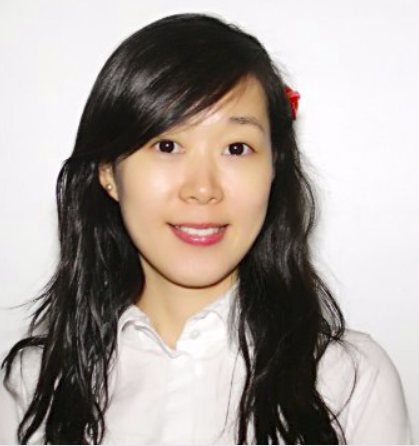Today, we are interviewing Renee Yao, Founder and CEO of Neo Ivy Capital.
We started our conversation by comparing notes on the very limited number of women we encountered at the Neural Information Processing Systems (NIPS) conference in Barcelona, in 2016 (both of us attended unbeknownst to one another). We found that, in addition to our interest in machine learning and other neural information processing techniques, we also share with Renee a mission to encourage women, especially younger generations, to embrace a career in quantitative finance and investing. Like her, we are committed to increasing the level of female representation in this fascinating field.
This article is another step towards our common goal!
What Contributed to Renee’s Success?
We asked Renee to tell us the things that contributed most to her success. She conveyed three basic themes that characterized her professional career:
- Theme #1: DEDICATION
- Theme #2: INNOVATION
- Theme #3: INSPIRATION
Renee graduated with an M.A. in Statistics from Columbia University and shortly after, in 2010, started her career at Citadel and entered one of the most auspicious branches of quantitative finance: artificial intelligence (a topic we cover in our upcoming book).
At Citadel, she felt fortunate to begin her career as a researcher in such a large organization where she could concentrate on transforming theory into practice. After leaving Citadel she joined WorldQuant and she moved from research to portfolio management by joining WorldQuant. WorldQuant is an international quantitative investment management firm. Here, her focus changed from generating ideas to translating ideas into profits.
Her responsibilities grew further when she joined a proprietary trading desk where she took on the responsibility for the development of a trading business. This led naturally to developing a desire to open her own shop. She founded Neo Ivy Capital, a quantitative hedge fund with the help of Millenium Management in early 2015 and funded the first strategy in June of 2016.
Renee identifies with the “third” generation of quants. In fact, she defines the first group as the “Salomon Brothers” quants, which thrived until 2007, just before the famous “quant meltdown” when it became clear that a more diversified alpha base was needed. This led to the birth of the “second” generation of quants focused on hiring hundreds of PhDs in an effort to “exhaust the human brain” to generate new alpha ideas. This lasted until the end of 2015 when evidence of alpha decay further demonstrated the need for finding uncorrelated alpha signals. The third generation of quants is now focused on training the machines to search for alpha in a faster and more efficient way. Neo Ivy Capital fits into this bucket.
Neo Ivy Capital focuses on trading publicly traded liquid securities and leverages Artificial Intelligence (AI) techniques to generate uncorrelated sources of alpha. Artificial Intelligence contributes about 60% to the investment process, the rest is based on more traditional quantitative management techniques.
Renee’s next frontier: Reinforcement Learning and Deep Convolutional Networks
These days, it is common in asset management circles, to toss around words like Machine Learning (ML), Deep Learning (DL) and so on (here is a good primer on the subject by Druce Vertes). These collective terms form the foundation for the concept of Artificial Intelligence, or AI. But what is AI? Renee shares that it took her two years to come up with a straightforward explanation to share with her potential investors.
AI is a process designed to train a machine so that the machine will think and analyze data similar to a human being including having the ability to improve itself spontaneously. This process is quite different from traditional data mining methods that typically uses statistical techniques to fit long time series of historical data and ultimately is capable of building only static models.
Renee and her current team of five researchers began studying and focusing on AI back in 2014 when, thanks to their strong ties to academic circles, they ran into the working version of the Alpha Go paper, which was later published in 2016 in Nature.
It is advantageous to participate in academic research groups, where papers are discussed long prior to their official publication and often provides a running head start on seminal research. The Alpha Go paper is one example, where prior exposure was key to Renee’s ability to apply the techniques of deep learning neural networks to her investment process.
Alpha Go has its roots in the ancient Chinese game of Go. Alpha Go functions by selecting game’s moves via supervised learning from human experts and reinforcement learning from self-play.
If this sounds like a foreign language to you, Renee has you covered. Investor education is as important (if not more) as the complexities of the algorithms. She built a nice demo that can be found on the Neo Ivy Capital website. Check it out here. It shows, in a very impactful way, how reinforcement learning works.
There has already been an evolution of Alpha Go, namely Alpha Go Zero, based on a new paper published last year in Nature. This time the algorithm functions only with reinforcement learning, without human data, guidance or domain knowledge beyond game rules. It is like Alpha Go is teaching itself and the results have been very good considering Alpha Go Zero defeated 100-0 Alpha Go, which in turn defeated the human world champion of the game.
To quote Professor David Silver:
…with fewer data and less computational intensity, Alpha Go Zero is performing much better than its predecessor, which was programmed by using millions of moves.
Renee believes this is exciting progress. In traditional data mining, static models are used—the researcher discovers a pattern and applies it the same way into the future with no opportunity to learn from its mistakes. Artificial Intelligence is dynamic, constantly improving and learning.
So what do her clients think?
Renee always gets a couple of questions from clients and potential clients: what is your edge and how long will you maintain this edge? She uses visuals (here) to show how different her approach is from other forms of statistical modeling. She believes that the dynamic nature of her models, which are based on continuous learning will help keep her edge for longer.
Critics of AI are worried about the poor interpretability of these models. We asked Renee how she deals with explaining the performances of her strategies to her investors. First of all, she points out that due to the complexity and idiosyncrasies of her investment process, it is critical to surround yourself with clients who share your vision and views.
Closing Thoughts from Renee
Back to some personal tips for our female audience who want to pursue a quantitative finance career. Renee recommends working hard to build your brand. Never stop learning and be open to innovation. And if you attend Columbia, you will likely meet her because she volunteers her time to mentor future young leaders.
Thank you, Renee: it has been a great pleasure and we wish you continued success!
Elisabetta & Tommi
About the Author: Wesley Gray, PhD
—
Important Disclosures
For informational and educational purposes only and should not be construed as specific investment, accounting, legal, or tax advice. Certain information is deemed to be reliable, but its accuracy and completeness cannot be guaranteed. Third party information may become outdated or otherwise superseded without notice. Neither the Securities and Exchange Commission (SEC) nor any other federal or state agency has approved, determined the accuracy, or confirmed the adequacy of this article.
The views and opinions expressed herein are those of the author and do not necessarily reflect the views of Alpha Architect, its affiliates or its employees. Our full disclosures are available here. Definitions of common statistics used in our analysis are available here (towards the bottom).
Join thousands of other readers and subscribe to our blog.


